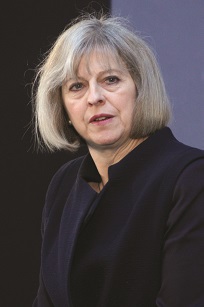PM makes long-term funding pledge
Speaking at a House of Commons Liaison Committee hearing on 27 March, Mrs May acknowledged the cost and demand pressures on the NHS, though she added funding was not the only answer. Variations in care quality should be tackled, integration between health and social care improved and there must be greater accountability for every pound spent, she added. Individuals had to more responsibility for their health to reduce pressures on the NHS.
However, she was convinced of the need to introduce a new strategic plan backed by longer-term funding. This could not wait until next year’s spending review, she said.
‘We also need to get away from this annual approach to the NHS budget and recognise that for the NHS to plan and manage effectively, we need to get away from those annual top-ups of the budget. We do need to have a sustainable, long-term plan that should build on the work of the five-year forward view, but we should look beyond it to a plan that allows the NHS to realise greater productivity and efficiency gains.’
She continued: ‘This is a critical priority for me, so this year and in advance of next year’s spending review I do want to come forward with a long-term plan. I want that to be done in conjunction with leaders of the NHS, clinicians and health experts. The government will provide a multi-year funding settlement in support of the plan, consistent with our fiscal rules and balanced approach, but ensuring that the NHS can cope with the rising demand ahead of the spending review.’
Though she ruled out a Parliamentary commission – proposed by senior politicians from all parties in a recent letter to the prime minister – Mrs May said she would like to build consensus on the long-term plan. This would mean examining the pressures facing the NHS, but also looking at how to reduce variation in quality and financial management.
Health Committee chair Sarah Wollaston, who also chairs the Liaison Committee – which is made up of select committee chairs – welcomed the commitment to a long-term settlement. ‘I look forward to hearing further details of the additional funding that will be available and to meeting her to discuss how she will build consensus with the public and across the political spectrum for the long term plan and for raising the resources necessary.’
NHS Providers chief executive Chris Hopson was pleased the prime minister had grasped the urgency of the situation in the health service. Any long-term settlement for the NHS must also consider social care, he said.
He added: ‘It is also positive that she wants to work with NHS leaders, but in doing this it is vital that the government listens to the concerns of frontline trusts, as well as the NHS national bodies. A key message she will hear is the importance of addressing current workforce shortages alongside funding requirements. Trust leaders say they need just as much help from the government in this area as well. ‘
Chris Ham, chief executive of the King’s Fund, said: ‘The prime minister’s announcement is welcome recognition that the NHS can no longer maintain standards of care with the funding it has been given. The service faces a £20bn funding gap by the end of the Parliament, and social care needs at least £2.5bn more next year to keep up with demand.
‘A new health and social care settlement is required to stabilise both services and enable them to plan with certainty for a growing and ageing population. Some of the new funds should be earmarked to support the widespread adoption of new models of integrated care better suited to changing population needs.’
Related content
We are excited to bring you a fun packed Eastern Branch Conference in 2025 over three days.
This event is for those that will benefit from an overview of costing in the NHS or those new to costing and will cover why we cost and the processes.